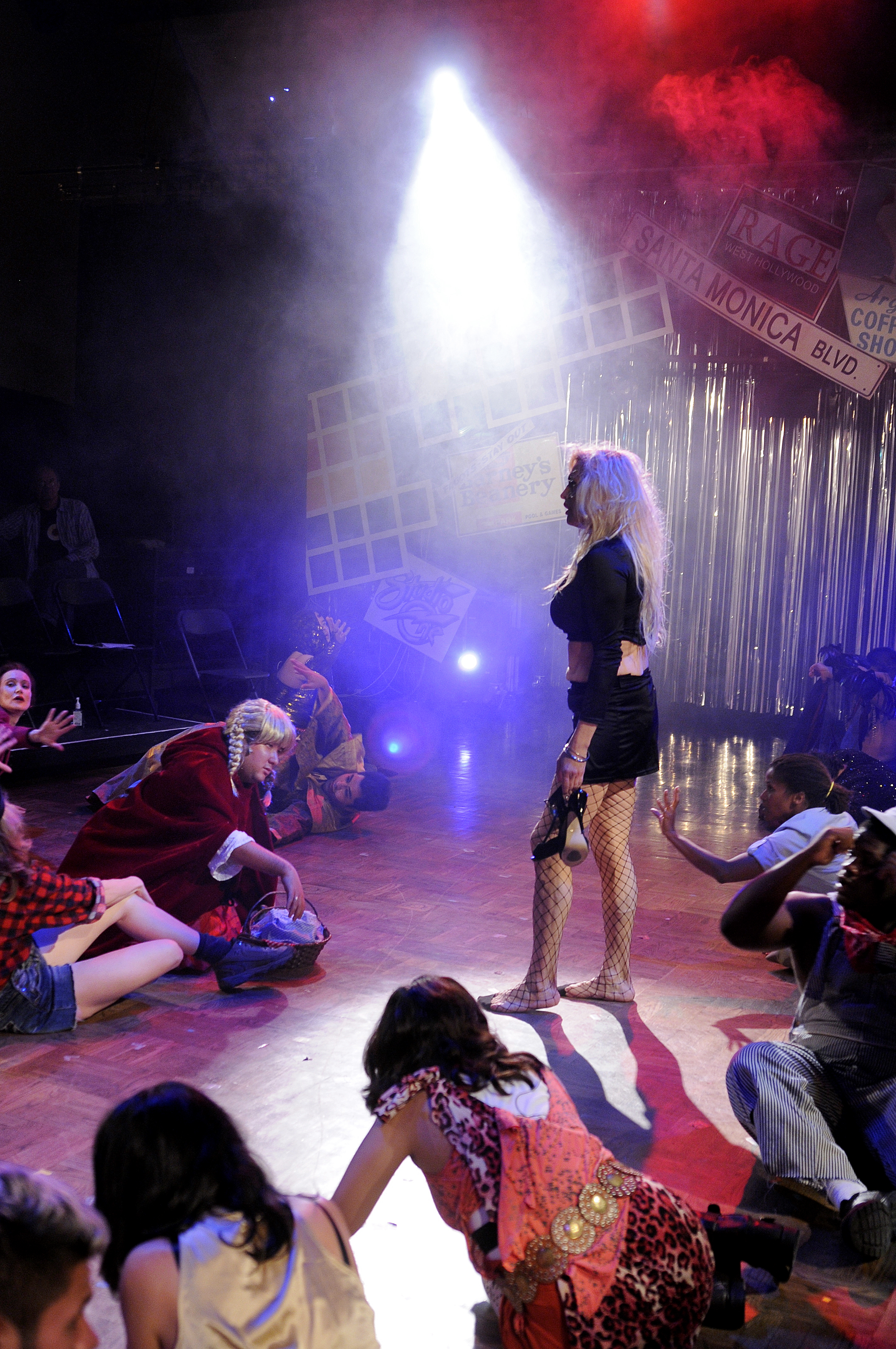Making Paradise: The West Hollywood Musical traces West Hollywood’s roots

Fiesta Hall will feature “Making Paradise: The West Hollywood Musical,” a musical following the development of West Hollywood into “the Creative City.”
COURTESY of JOHN C. LUKER
"˜Making Paradise:
The West Hollywood Musical'
Through Nov. 7, Thur. – Sat. 8 p.m., Sun. 3 p.m., $20
Fiesta Hall, Plummer Park – West Hollywood
By Ruiling Erica Zhang
Oct. 22, 2010 1:11 a.m.
West Hollywood has distinct UCLA roots, according to “Making Paradise: The West Hollywood Musical,” a new show produced by Cornerstone Theater Company.
In the show, four UCLA friends’ search for community in the early ’80s leads to founding of the city of West Hollywood and its status today as a creative hub. Commissioned by the city of West Hollywood, the musical celebrates West Hollywood’s 25 years of cityhood. It’s also the opener of Cornerstone’s 25th anniversary season, running through Nov. 7.
Tom Jacobson, the author of the book on which the musical is based and a UCLA alumnus, came up with the four principal characters by drawing from his personal experience.
“It’s really a composition of stories from many, many people … and their stories of life in West Hollywood. I happened to be one of those people who lived in West Hollywood, so it’s a little bit of my story too,” Jacobson said.
To prepare for the script, Jacobson interviewed 50 individuals from West Hollywood, met with various groups and conducted story circles, where people told their own stories. They included Russian immigrant seniors, GLBTQ youth and a transgender group from the Los Angeles Gay & Lesbian Center, another community partner of the production.
“Making Paradise” is the first musical Cornerstone has ever produced.
Co-director and Cornerstone artist director Michael John Garcés said that a large part of the company’s mission is to find a way to give voice to people from the community, both professional and non-professional, and the musical is a medium that has always literally given people their voice.
“I’d say we’re very much a populist theater company, and the musical is a popular art form … it’s a great combination,” Garcés said.
Although the UCLA campus may not generally think of itself as part of the West Hollywood community, for Garcés, the play itself is in large part about defining what community is.
“It’s been an ongoing conversation, and I always feel like we get to try to be flexible in thinking about that, and try to make it a conversation,” Garcés said.
Most of the play’s action takes place in a local store called Argo’s Coffee Shop, which used to be on the corner of Fairfax Avenue and Santa Monica Boulevard The actual production takes place at Fiesta Hall in Plummer Park, which is also the original location of the cityhood movement’s historical meetings, and so some scenes will be using the hall as it was used in real life.
Set in the periods of 1983-84 and 2009-10, the play begins in the present, when two people confront each other about what happened 25 years ago in West Hollywood.
The music is reminiscent of the early ’80s, with a rock-informed musical score by Deborah La Puma.
Lyricist Shishir Kurup, who is also part of the ensemble in “Making Paradise,” has long been involved in Cornerstone, and has written, directed and acted in past productions.
Kurup has composed and written musical numbers before, but never only written lyrics. He said he was initially slightly uncomfortable with the idea.
“The idea of a lyric usually comes with a very interesting line, like a phrase that comes out of something that you’re thinking or something you’re responding to, and usually there’s a melody that kind of attaches itself to it,” Kurup said. “In this case it was different because I didn’t have that melody line.”
Although it was a challenging new venture, there was a close collaboration between Jacobson and Kurup, who were already old friends, and composer La Puma. Kurup kept many of the song titles Jacobson initially suggested in his script; sometimes the lyrics came first, and other times they had to fit music La Puma had already composed.
“It just turned out that when we met it was like the perfect three stooges. We all clicked immediately, we have similar minds,” Kurup said. “I thought, “˜OK, at least we’ll have a good time doing this, whether this is any good or not.'”
The team wrote a large number of songs that also include many memorable variant reprises.
“There’s this thing called “˜earwigs.’ … “˜Earwigs’ are some melody that will burrow into your brain, and I think that’s what we have,” Kurup said. “That’s what you want, right? You want people to be walking out, singing that song.”


